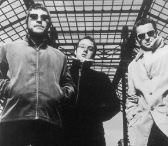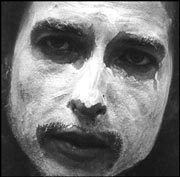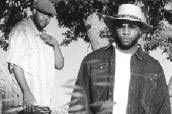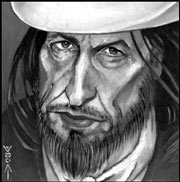DOVES WITH ELBOW
Graceland, 381-3094 , $15.50 adv. 8 p.m. Mon., June 3
ANDY WILLIAMS insists they weren’t depressed, really. It was just that the band had gone through such a rough patch, what with all their instruments and recorded material getting destroyed in the electrical fire, that the first album simply reflected the siegelike atmosphere that pervaded the group’s dynamic at the time.
“Lost Souls was a hard album to make,” Williams reports flatly. “But depressed, well . . . I don’t know. I don’t think so.”
Times have certainly been harder for Andy Williams, his twin brother, Jez, and Jimi Goodwin, who make up the Manchester, England, guitar-pop trio currently known as Doves. It’s been just about two years since that band released its widely acclaimed debut, Lost Souls. But prior to that—and with the very same lineup—the trio had been a staple in the Mancunian music scene, under another name and with an entirely different orientation.
Where Doves’ aesthetic runs decidedly to epic pop, the band from which it emerged was a trance-techno ensemble called Sub Sub, which scored a club hit with the 1993 single “Ain’t No Love (Ain’t No Use).” Sub Sub became a favorite on England’s underground dance circuit, releasing a string of singles and a full-length (Full Fathom Five) that collected some of their most promising work.
Then came the aforementioned studio fire in 1995—which, adding insult to injury, broke out as the Williams brothers were celebrating their birthday.
It took a while for the trio to take up instruments together again, but by 1998, they’d decided to give it another go—this time as Doves, an outfit that would indulge their penchant for elegiac pop composition.
“I think where Sub Sub was more singles-oriented,” Andy Williams says, “Doves is much more of an album band—not that we’re leaving behind the single form, but it’s a lot different, crafting a whole album vs. a single or an EP. We wanted to make sure that the whole thing hung together and made sense, and we didn’t really know whether we could do that at the beginning.”
By the time Lost Souls was released in 2000, the band felt more confident. The album’s reception was uniformly positive, but a string of frustrating critical comparisons—in the late ’90s, calling attention to an English band’s debt to Oasis was worth about the mouthful of air it took to expel the thought—threatened to obscure Doves’ considerable talent.
Despite two sold-out tours at home and in the States, a sign that Doves were on the right track, much of the press tossed the band’s way was of the “like Noel Gallagher but with smaller ears” critical shortcut variety.
(“And I still don’t understand the U2 thing at all,” says Williams, regarding one of the more persistent comparison points. “I always thought we had more in common with the Flaming Lips.”)
But now it’s 2002, and Doves are set to release The Last Broadcast, a glorious, guitar-soaked, outright treasure of a pop album. It’s a significant artistic development for the group, a sophisticated and intricately crafted work. Produced largely by the band, it’s also a much more upbeat affair than their first record.
“There was a really positive feel to this record that was missing from the first, where we were writing it for three years and had to be in the studio forever,” notes Williams.
The Last Broadcast took just under a year to put together—between jaunts on the road—and the band seem to have pulled the high spirits of their 2001 tours into the studio. The soaring harmonies of “Words,” the insistent guitar hook and audible joy of the leadoff single, “There Goes the Fear,” and the positivity that runs through tracks like “Satellites” (“I want you to know this/My anger’s all but done”) combine to make an album that, for the first time, suggests Doves have accomplished precisely what they intended, invidious comparisons be damned.
Moreover, the years spent crafting singles as Sub Sub have given Doves an edge over many of their contemporaries—though the album is very much a unified piece, shimmering individual moments like “N.Y.” and “Pounding” (poised as the second single) give The Last Broadcast a tour-de-force feel.
Kicking off their support tour in Seattle on June 3, a day before the album’s official release, Doves will soon learn whether The Last Broadcast removes the Mancunian critical straitjacket from their sound. Andy Williams, at least, remains optimistic:
“We’re looking forward to it. The last time out was so positive, and we all feel good about the record. Nah, no worries, man.”
There you have Doves’ unique character; so much more positive than that other Manchester band . . . um . . . the name escapes me.








